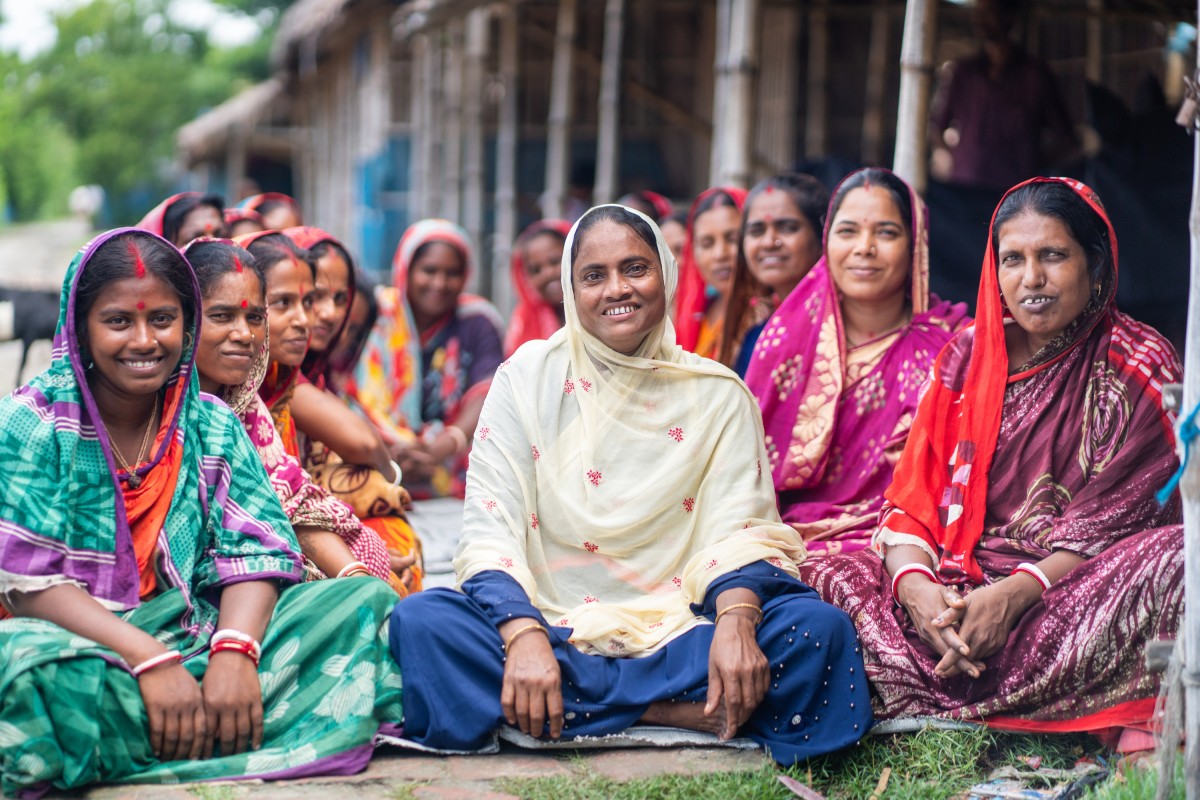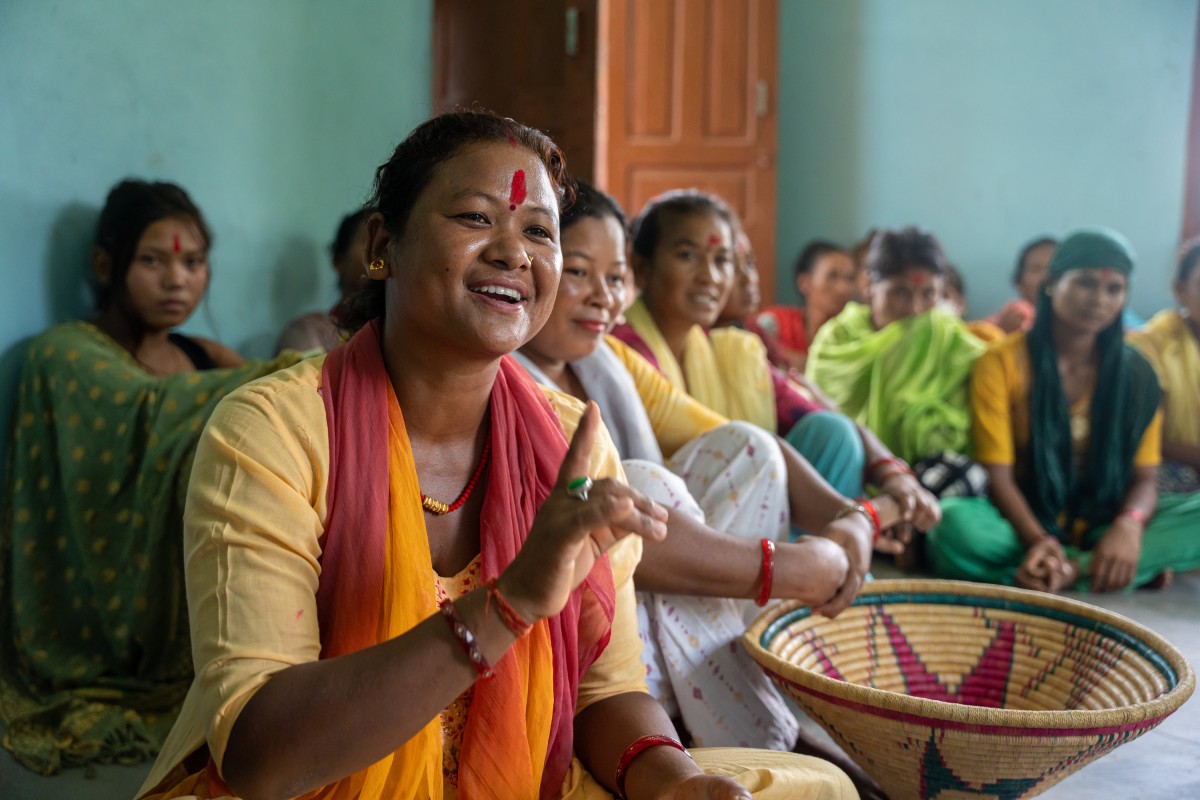‘Locally led adaptation is critical to achieve water justice in the face of the climate crisis’
For Simavi Director Dieneke van der Wijk there is no doubt: empowering communities to take ownership of the process of adapting to the impacts of climate change is crucial. ‘If we want climate justice and water justice, this is the only way forward.’ Simavi has officially endorsed the Principles for Locally Led Adaptation. What does this entail?
Simavi places great value on its programmes being locally led, why is this?
‘When we talk about locally led, we talk about the importance of allowing communities to take charge of their own development. This means that instead of outsiders coming in and telling them what to do, people should be empowered to make decisions and take action based on their own knowledge and experience.
For Simavi it is important that these principles recognise that communities have valuable knowledge, resources, and expertise that are critical to achieving sustainable development. We understand the importance of building partnerships and trust between communities, governments, and other stakeholders, and of being flexible and adaptable to changing circumstances.’

Can you give an example of a Simavi-programme that is locally led?
‘A good example is our Water Justice Fund programme. In this programme we closely follow the Locally Led Adaptation Principles. Simavi is one of the organisations that officially endorsed these principles through a worldwide community of practice initiated by the World Resources Institute (WRI).
One of the principles is providing patient and predictable funding that can be accessed more easily. It is at the core of the Water Justice Fund to provide gender just climate financing based on a grassroots grant making model. This puts resources directly into the hands of women’s groups in climate vulnerable areas in Kenya, Nepal and Bangladesh. The funding will extend over a longer period: the years 2023 to 2030.
We also implement another important principle of locally led: devolving decision-making to the lowest appropriate level. In the Water Justice Fund grant financing is provided to our in-country partners, to administer to women-led community groups. Our participatory grant model will use a democratizing approach where people in the country form a community to review and choose the grants for that region.
We are committed to learning and flexible programming. Sharing knowledge, based on local expertise, will fill policy and programme gaps in field of climate vulnerability and responses of grassroots women and girls in Africa and Asia.’

'Locally led adaptation means empowering communities to take ownership of the process to adapt to climate change.'
Why do you think locally led adaptation is getting more and more attention worldwide?
‘It is becoming ever more obvious that the climate crisis is having great impact on the availability of safe drinking water. Locally led adaptation means empowering communities to take ownership of the process of adapting to the impacts of climate change in their own communities. It involves recognising the unique knowledge, perspectives, and experiences of these people. And having them take the lead in the design, planning, and implementation of climate adaptation measures.
This approach is essential for ensuring that climate adaptation measures are effective, sustainable, and equitable. And it can help to build resilience and capacity in communities over the long-term. This will lead to more sustainable solutions because they are motivated and coming from the people who need them and will use them. Closer to the action means we are closer to the solution.
Examples of adaptation measures could be water conservation and storage, or agroforestry. Measures that help to better cope with the impact of climate change and have improved access to water. And ensure that women and marginalised groups are included and have equal access to resources.’
Are governments also committed to locally led principles?
‘The Dutch government has officially committed to locally led principles in their development cooperation efforts, including in the water and sanitation sector. For example, the Dutch government's funding for water and sanitation projects through the WASH SDG programme, implemented by a consortium led by Simavi, included a focus on working with in-country partners and communities. The programme emphasized a participatory approach to project design and implementation, with a focus on involving communities in decision-making processes and building their capacity to manage and sustain water and sanitation services over the long-term.’

Are governments doing enough to make locally led adaptation possible?
‘No, governments, including the Dutch one, should increase their funding for locally led organisations and initiatives. The sixth IPCC Assessment Report that was published last year also stresses this. Current global financial flows for adaptation are just insufficient for the necessary adaptation measures, and constrain implementation, especially in low-income countries.
The problem is also that the effectiveness of adaptation, including most water-related options, will decrease with increasing warming. In other words, if governments keep stalling, the costs will explode. The IPCC also states that the feasibility and effectiveness of measures increase with integrated solutions that address social inequities. That's why we are pushing governments to ensure that communities, and especially women and girls and other marginalised groups, are truly involved in decision-making processes.’

